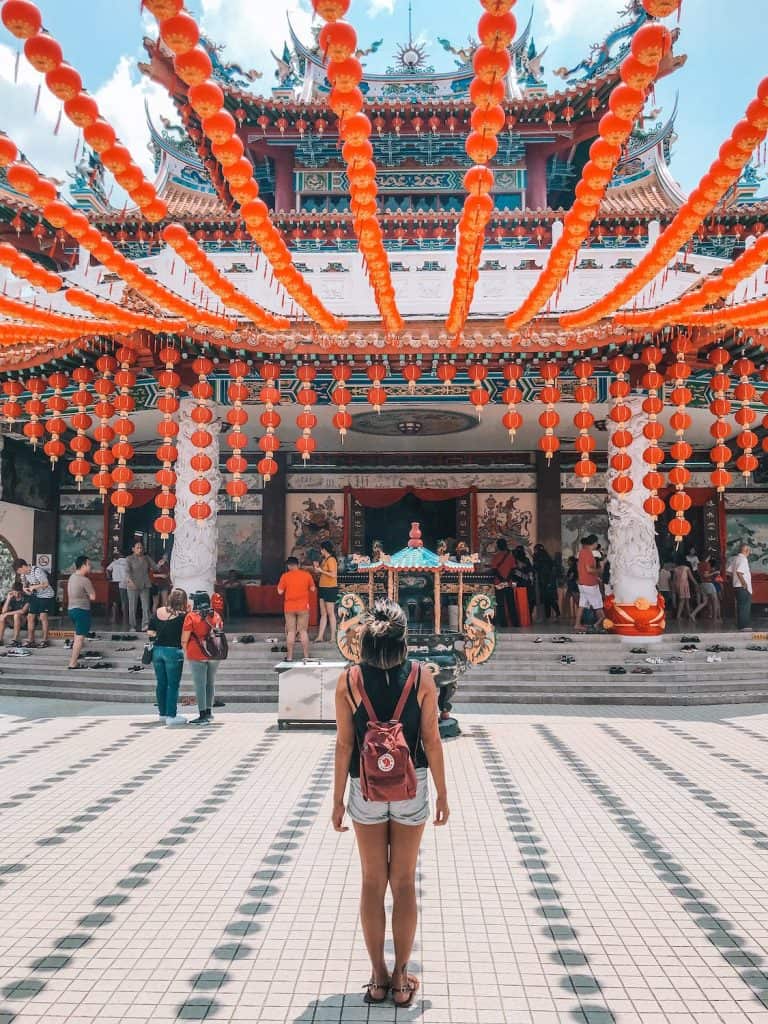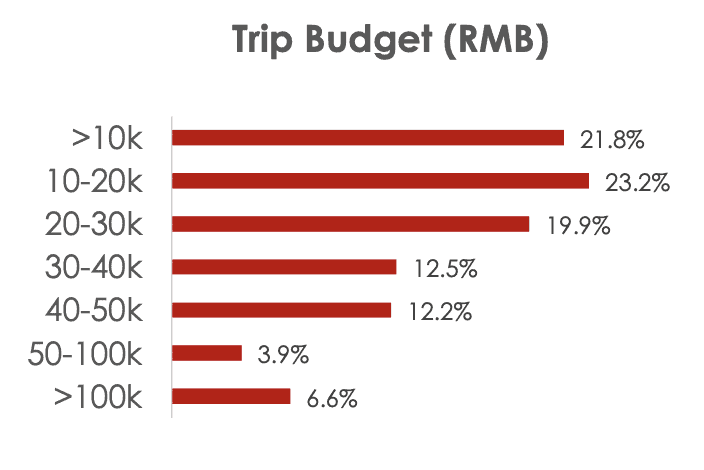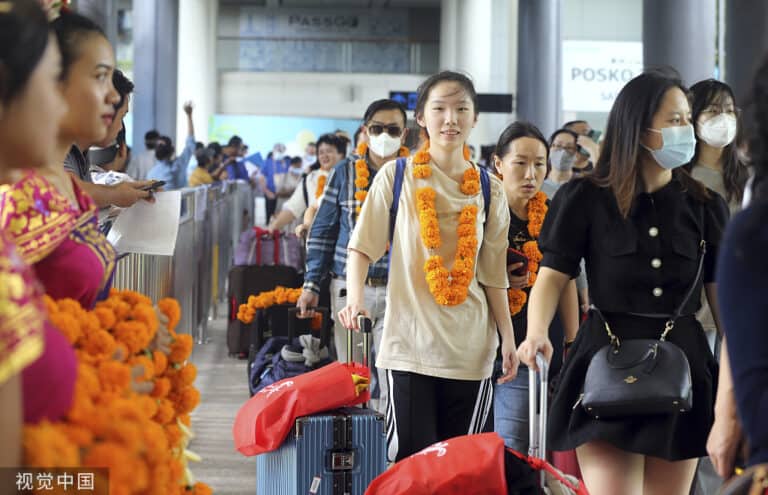What Does The Typical Chinese Trip Look Like?
China is quickly becoming a favorite travel destination for people worldwide, thanks to its rich history and culture. The country boasts a vast array of experiences, from modern city life to awe-inspiring natural landscapes, making it an ideal place to explore.
But what does the typical Chinese trip look like? This blog post dives into the common travel companions, the average length and budget of a trip within China’s borders, as well as shining some light on unique aspects of Chinese customs and traditions.
Travel Companions
Travel companions for Chinese tourists vary but family members make up the majority at 48%, followed by friends at 29%, and 17% want to go on a trip with their boyfriends/girlfriends.
48% Family

Chinese travelers like to travel with their families, as family ties are important in Asian culture. 48% of Chinese travelers choose their families to travel outside of China.
Many Chinese Millennials want to have unique travel experiences that reflect their interests and prefer to immerse themselves in local cultures instead of visiting typical tourist spots.
They value making personal connections with locals during their trips.
29% Friends
Almost one-third (29%) of Chinese travelers opt to travel with friends as their preferred companions.
Traveling with friends brings a sense of camaraderie, which helps in sharing responsibilities such as planning the trip or handling any unexpected obstacles during the journey.
Cost-sharing is one of the benefits of traveling with friends, as it allows for splitting accommodation expenses and transportation fees, making it more affordable for everyone involved to explore new destinations.
17% Boyfriend Or Girlfriend

Traveling with a romantic partner is a popular choice among Chinese travelers, accounting for 17% of trips. This type of travel can greatly enhance cultural immersion and language learning experiences.
Having a partner by your side can help navigate the complexities of Chinese culture, easily connect with locals, and understand local customs that may have gone unnoticed otherwise.
Some travelers even go as far as paying for a “fake” Chinese partner to travel with them, solely for the purpose of enhancing their
5% Solo

Even if this represents a minority, 5% of Chinese travelers prefer to travel alone.
This is due to the fact that in Chinese culture, there may be societal expectations and pressures to conform to group norms and behaviors. Solo travel can provide a temporary escape from these pressures and allow individuals to express their individuality
1% Classmates Or Colleagues

The 1% of Chinese travelers who go on trips with classmates or colleagues are a unique group. They may be traveling for work-related purposes, such as attending a conference or meeting, or simply looking to bond with their peers outside of the office or classroom.
Despite being a small percentage of Chinese travelers, this group highlights the importance of teamwork and collaboration, even when outside
Trip Length
70.9% of Chinese trips last between 5 to 10 days, with other trip lengths varying in popularity.
5 To 10 Days Represents 70,9% Of Travels
A significant proportion of Chinese travelers (70.9%) are inclined to travel for a duration of 5-10 days, which could involve a variety of activities such as visiting relatives in another city or embarking on a weekend getaway with friends to explore a new destination.
This trend is crucial for businesses seeking to attract Chinese tourists, as they need to be aware of these preferences and tailor their marketing strategies to meet their needs.
Other Trip Lengths
There are still other trip lengths that travelers opt for depending on their schedules and budget.
Some may choose to take a quick weekend getaway or an extended vacation lasting several weeks or even months.
Trip Budget In RMB
How much will Chinese travelers spend? 45% of them say they will keep their travel budgets within RMB20,000 (around US$3,000). In the aftermath of COVID, many will have somewhat constrained travel spending.

Conclusion
In conclusion, over 60% of Chinese respondents want to travel abroad this year, but some have no plans to travel or will only travel domestically.
The Chinese travel market is expected to recover in the second half of 2023, with peak travel periods in July, August, and during the Mid-Autumn Festival and National Day Golden Week holiday.

We are a China-based marketing agency focused on providing cost-effective solutions for Western companies wanting to reach out to Chinese consumers. Our team of Chinese and foreign experts has the experience and know-how needed to succeed in the Chinese market.
We offer many services, including:

Don’t hesitate to leave us a comment or contact us, so that we can schedule a meeting with one of our experts, that will learn about your brand and present you with the best solutions to attract Chinese tourists to your destination!







